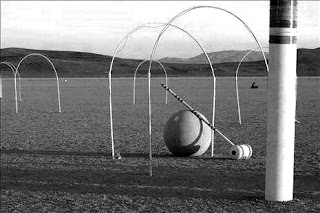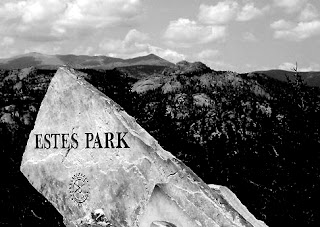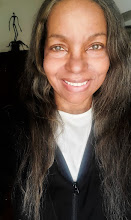I traveled, saw movies, read books and went to galleries and museums when I was growing up because my mother wanted me to have more education than school could provide.
During the summer of 1964, I traveled to Denver to vacation with Aunt Clara and Uncle Fred in Denver. I spent many summers and other out-of-school time with those two. They had no children of their own, and seemed to really enjoy having me as a substitute.
Aunt Clara and Uncle Fred mailed me money wrapped in letters and cards, which I answered promptly. When I was young, they mailed me dolls, games and gadgets. Later, more expensive gifts came. They paid for my insurance, watches, jewelry, fancy winter caps, Cashmere sweaters, quilted poodle skirts, pink petticoats, books, a typewriter, tiny radio with earphone, a Baby Ben alarm clock for my bedside table and other "unnecessary stuff you don't need and we have no place to store," my mother said. I loved to listen to music on the transistor radio they sent. I placed the little gadget under my pillow and fell asleep listening to Randy Record Shop out of Nashville, Tennessee.
Aunt Clara liked stylish clothes and bought expensive dresses, and leather and woolen coats, which I relieved her of when I became a teenager, along with most of her makeup and beauty products.
The subject even came up that I could live with them during my high school years and get a better education in a Denver school than I could back home. It was all about civil rights, the subject of Martin Luther King's speeches, Brown v the Board of Education and Rosa Parks in the Montgomery Bus Boycott.
Aunt Clara and Uncle Fred kept my school in mind when they bought a nice little home with a second bedroom that could be mine in a quiet, racially mixed neighborhood. The next door neighbors on both sides were white and there were lots of children my age of all races riding their bicycles together up and down the tree-lined paved streets with green lawns, flower gardens and sidewalks. I could even have a bicycle, they said. No bicycle for me back home. There were green lawns and vegetable gardens where I lived, but no flower gardens, paved streets or sidewalks and nowhere to ride a bicycle on the bumpy red-dirt and gravel trails that connected the blocks of my Candy Hill neighborhood.
Aunt Clara and Uncle Fred kept my school in mind when they bought a nice little home with a second bedroom that could be mine in a quiet, racially mixed neighborhood. The next door neighbors on both sides were white and there were lots of children my age of all races riding their bicycles together up and down the tree-lined paved streets with green lawns, flower gardens and sidewalks. I could even have a bicycle, they said. No bicycle for me back home. There were green lawns and vegetable gardens where I lived, but no flower gardens, paved streets or sidewalks and nowhere to ride a bicycle on the bumpy red-dirt and gravel trails that connected the blocks of my Candy Hill neighborhood.
 |
| East High School - Denver, Colorado |
Aunt Clara and Uncle Fred said I could attend East High School, the oldest high school in Denver and one of America's top high schools in the 1960s. Uncle Fred drove me past the school one winter day in his new car when I had traveled to Denver during the Christmas holidays.
"East High School is a great school!" Aunt Clara told my mother on the telephone. "Fred will drive her to school every day."
The following summer, 1964, they arranged a tour of East High School with a friend attending the school that Fall. There were long discussions on the telephone about East High School that summer. I liked the elegant school building and imagined walking into the tiled hallway and up the grand staircases. But I knew my mother well enough not to get into a discussion with her about it. My mother's was always the last word over mine, my father's, Bigmama's and certainly Aunt Clara's.
"East High School is a great school!" Aunt Clara told my mother on the telephone. "Fred will drive her to school every day."
The following summer, 1964, they arranged a tour of East High School with a friend attending the school that Fall. There were long discussions on the telephone about East High School that summer. I liked the elegant school building and imagined walking into the tiled hallway and up the grand staircases. But I knew my mother well enough not to get into a discussion with her about it. My mother's was always the last word over mine, my father's, Bigmama's and certainly Aunt Clara's.
 |
| East High School, Main Hallway |
"I know the school in Denver is better than schools here," my mother said. "I know you and Fred have more money to spend on her than we do."
Uncle Fred had an office. He took me to the research laboratory where he worked. Aunt Clara was an assistant administrator at a large Catholic hospital. Not many black people in our town had jobs to equal those in the 1950s and '60s. Wages in most southern towns were very low and promotion was still next to impossible.
"I appreciate everything you do for her, Clara," my mother said. "I know you mean well offering to send her to high school out there."
"If it's about money, we'll buy all of her school clothes and pay for anything else she needs," Aunt Clara said.
"It's not about money, Clara."
"Then why won't you let us give her this white education?" Aunt Clara asked.
"Because I'm her mother."
To my mother it wouldn't have mattered whether I went to a great school, a white school or any other school. It had nothing to do with integrated schools or liberal Colorado politics.
My mother wanted to give me an education herself, not that she doubted Aunt Clara's sincerity about school. My mother had a plan and her plan would work better with her in control. She wanted me to go to college and she felt that the road to a college education would be best paved by her, regardless of where I graduated high school. And the discussion was closed forever, although I resented not having input into the decision.
My mother wanted to give me an education herself, not that she doubted Aunt Clara's sincerity about school. My mother had a plan and her plan would work better with her in control. She wanted me to go to college and she felt that the road to a college education would be best paved by her, regardless of where I graduated high school. And the discussion was closed forever, although I resented not having input into the decision.
College was my mother's insurance for my success.
For my birthday that summer, Uncle Fred went out and bought a croquet lawn set and read all the rules to learn how to play, so he could teach me and my friends how to play. Uncle Fred sacrificed his impeccably landscaped rear garden with flowerbeds along the fence that separated their backyard from the neighbor's very large Great Dane. After carefully placing the wire wickets and hardwood stakes into the soil, Uncle Fred tried out a wooden mallet for himself to strike an Easter-egg-colored wooden ball. He did not let me try the game or teach me the rules, saying it wouldn't be fair to the others if I knew how to play the game already.
Croquet, a one-thousand-year-old outdoor game invented around 1066 for the English Royal Court, took its name from the French word, meaning conqueror.
 |
| Croquet Set - 4 Player |
A game that had stirred the imaginations of a great number of Americans by the 1960s, croquet had also seemed to have ignited Uncle Fred's attention, too. Why he thought genteel competition would be appropriate for me and my little heathen friends, I will never know, but I am sure it had something to do with my mother.
When I returned home on the train at the end of the summer, the croquet set was shipped along with all my other birthday and vacation gifts. I found out later that the croquet set was quite expensive and my mother had shared in that expense. "You can teach your friends here to play the game," my mother said, unwrapping Uncle Fred's sturdy package.
When I returned home on the train at the end of the summer, the croquet set was shipped along with all my other birthday and vacation gifts. I found out later that the croquet set was quite expensive and my mother had shared in that expense. "You can teach your friends here to play the game," my mother said, unwrapping Uncle Fred's sturdy package.
| Birthday Cake Book |
On my birthday, in addition to spending a lot of money on games, Aunt Clara purchased my birthday cake and made all the snacks. Then Aunt Clara brought her phonograph from the living room out into the backyard to play the latest music she had bought, to which we were to teach her the latest new dance steps. On three card tables, Uncle Fred set up his chess set to try to teach us to play, a set of dominoes, set of checkers and other board games I had never seen.
It was a fine birthday with my friends nibbling on healthy snacks and other goodies at my mother's insistence, "Don't come
Aunt Clara danced with my friends and Uncle Fred played Chinese checkers, regular checkers, dominoes and other table games with them. But mostly comparing notes about politics, race relations and civil rights that we had all been hearing so much about on television lately. Everyone had an opinion. I thought the new civil rights law meant more to me than it did to my Denver friends until we got into some pretty heated discussions. The school they attended, East High School, where Aunt Clara tried to convince my mother I should go, was integrated. They could sit at the lunch counter at Woolworth's. They could watch movies from any seat in the theater. What is their complaint, I wanted to know. Certainly Martin Luther King wasn't talking about them in his speeches.
 |
| Estes Park Rocky Mountain National Park |
Aunt Clara and I rode at the front of the bus not the back like Rosa Parks had been forced to ride before the Montgomery Bus Boycott. When Aunt Clara took me to Red Rock, Cherry Creek, Colorado Springs, Estes Park or other places in the mountains to see the sites, clerks behind the souvenir counters were polite when they took our money for postcards, trinkets and gifts. That was all I expected from civil rights, except that I may have to go to a different school one day.
"A few," they said.
As I listened, I realized that these people experienced racism of a different kind, "the sneaky kind," as my mother would say. They had been made to stand in lines waiting for services because of their race. They were taunted at school and treated badly by some white teachers and students. This whole subject of race and civil rights in Colorado and the rest of the nation was a lot more complicated that I had thought. Maybe living in Denver and going to East High School wouldn't be that great after all.
Tweet
Sunny Nash – Race Relations in America

No comments:
Post a Comment
Note: Only a member of this blog may post a comment.